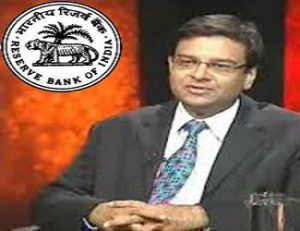Union Finance Ministry notified that Urjit R. Patel, Reserve Bank of India (RBI) deputy governor, has been appointed as the new governor of Reserve Bank of India as Raghuram Rajan’s successor.
About Urjit R. Patel :
Urjit R. Patel is an Indian economist, consultant and banker, currently serving as Deputy Governor of the Reserve Bank of India (RBI). As Deputy Governor of RBI, he looks after monetary policy, economic policy research, statistics and information management, deposit insurance, communication and Right to Information. On 20 August 2016, he was named as the governor of RBI to succeed Raghuram Rajan when the latter’s term expires in September 2016.
- Patel obtained his Bachelor’s in Economics from the London School of Economics, M. Phil. degree from Oxford University in 1986. He received his doctorate in Economics from Yale University in 1990. He was at IMF India desk during the 1991–94 transition periods. He was posted to IMF country mission in India 1992–95. He has also been a non-resident Senior Fellow at the Brookings Institution since 2009.

- After obtaining his PhD, Dr. Patel joined the International Monetary Fund (IMF) in 1990 worked on the USA, India, Bahamas and Myanmar desks at IMF till 1995. Thereafter he went on deputation the IMF to the Reserve Bank of India, where he played an advisory role in the development of the debt market, banking sector reforms, pension fund reforms, targeting of real exchange rate.
- After the two-year deputation with RBI, Patel became a Consultant to the Government of India in the Ministry of Finance, Department of Economic Affairs – a position he held from 1998 to 2001.
- Between 2000 and 2004, Dr. Patel worked with several High Level Committees at both Central and State Government level, including Competition Commission, Task Force on Direct Taxes, Prime Minister’s Task Force on Infrastructure, Group of Ministers on Telecom Matters, Advisory Committee on Research Projects and Market Studies, Committee on Civil Aviation Reforms, Expert Group on State Electricity Boards and High Level Expert Group on Civil & Defence Services Pension System.
- On 11 January 2013, Urjit Patel was appointed as Deputy Governor of RBI for a period of three years. He took over charge of the vital Monetary Policy Department, succeeding Subir Gokarn to the post.
On 20 August 2016, he was appointed as the governor of Reserve Bank Of India(RBI) succeeding Raghuram Rajan.
He served in various posts in various companies and legal bodies such as,
- Advisor, Boston Consulting Group
- President, Reliance Industries Limited– 2015
- Executive Director, Infrastructure Development Finance Company(1997-2006)
- Member, Integrated Energy Policy Committee, Government of India (2004-2006)
- Non-Executive Director, Gujarat State Petroleum Corporation
- Non-Executive Director, Multi Commodity Exchangeof India Limited
- Deputy Governor, Reserve Bank of India.
- Governor, Reserve Bank of India(From 4th September, 2016 )
When the UPA Government in India came into power for a second term in 2009, it announced a ‘100 day’ action plan, which became a hot topic for media discussion. Surprisingly, Urjit Patel was the expert commentator on UPA’s first 100 days on Hindi News Channel, although he had no prior media exposure in India
About RBI :
The Reserve Bank of India is India’s central banking institution, which controls the monetary policy of the Indian rupee. It commenced its operations on 1 April 1935 during the British Rule in accordance with the provisions of the Reserve Bank of India Act, 1934.
- The original share capital was divided into shares of 100 each fully paid, which were initially owned entirely by private shareholders.Following India’s independence on 15 August 1947, the RBI was nationalized on 1 January 1949.
- The RBI plays an important part in the Development Strategy of the Government of India. It is a member bank of the Asian Clearing Union.
- The general superintendence and direction of the RBI is entrusted with the 21-member Central Board of Directors: the Governor, 4 Deputy Governors, 2 Finance Ministry representatives, 10 government-nominated directors to represent important elements from India’s economy, and 4 directors to represent local boards headquartered at Mumbai, Kolkata, Chennai and New Delhi.
- The bank is also active in promoting financial inclusion policy and is a leading member of the Alliance for Financial Inclusion and this bank is often referred to by the name Mint Street.





